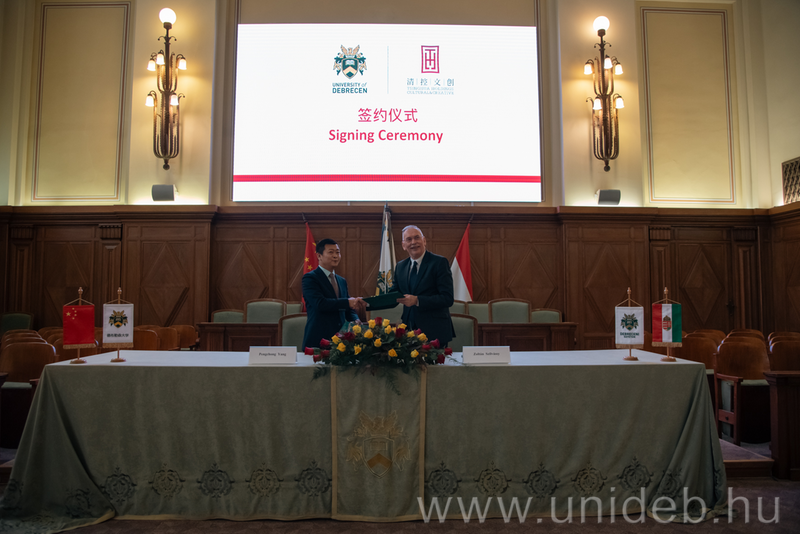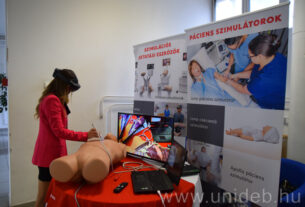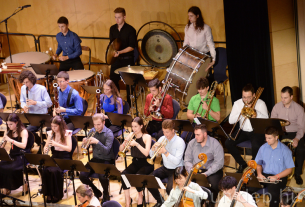The University of Debrecen has signed a research, innovation, and technology cooperation agreement with China’s leading higher education institution, Tsinghua University. The partnership encompasses areas such as medical science, therapeutic procedures, pharmaceutical and food development, as well as AI-based research and development. The agreement was signed at the University of Debrecen.
A joint mini-symposium showcasing the latest advancements in technology transfer and cutting-edge innovative solutions was organized by the University of Debrecen in collaboration with researchers and scientific partners from Tsinghua University, ranked among the top global universities. During the event, the Chinese delegation received detailed insights into various research projects in Debrecen, including R&D processes for pharmaceuticals, dietary supplements, and functional foods, as well as AI applications in innovative drug and food research processes.
Tsinghua University’s Traditional Chinese Medicine Interdisciplinary Research Institute (TCM-X) has achieved significant results in AI-based research and development of traditional Chinese and modern medicines. Representing the institute, researcher Zhang Bo presented the UNIQ system, developed by Li Shao, a fellow of the European Academy of Sciences and Arts. This system is effectively used in interdisciplinary research in traditional Chinese medicine and translational studies in pharmaceuticals, food, and products.
Regarding the collaboration, Rector Zoltán Szilvássy reflected on recent milestones:
- “Our institution recently became a full member of the University Network for Research Collaboration, part of the Belt and Road Initiative’s partner university network. This was facilitated by our close collaboration with three major Chinese companies: Eve Power, CATL, and Semcorp. Parallelly, our partnership with BMW represents another key factor shaping the future, creating an ideal situation where the University of Debrecen is recognized as a partner by both the Chinese international network and German stakeholders. This is unprecedented in the nearly 500-year history of our institution. Additionally, the cultural connection is significant, as medical science and traditional Chinese medicine provide a uniquely valuable cultural platform for our cooperation.”
The rector also emphasized that the faculties of Pharmaceutical Science, General Medicine, and Health Science, alongside the Clinical Center, constitute a significant health-industry scientific base. This is further enriched by the researchers and achievements of Tsinghua University, which shape the global scientific landscape, and the Belt and Road Initiative’s partner university network, providing a forward-looking and financially solid foundation for international collaborations.
Yang Pengchong, who signed the cooperation agreement on behalf of Tsinghua University, expressed his appreciation for the University of Debrecen’s historical heritage, health industry efforts, and strategies. He highlighted Tsinghua’s commitment to interdisciplinarity and its departments’ dedication to improving the quality of human life:
- “Our goal is to introduce traditional Chinese medicine, food, and pharmaceutical sciences to Hungarian experts and create innovation through collaboration. We are delighted to find a university in Debrecen with a profound historical legacy and significant expertise in medicine and healthcare.”
Following the mini-symposium, the Beijing delegation visited the Confucius Institute, established in 2019 at the University of Debrecen, as well as the Scientific, Technological, and Innovation Park on Vezér Street, the Faculty of Pharmaceutical Science, and the Faculty of Agriculture, Food Science, and Environmental Management. They also held discussions with rural development experts from the Faculty of Economics on potential areas of collaboration.


















